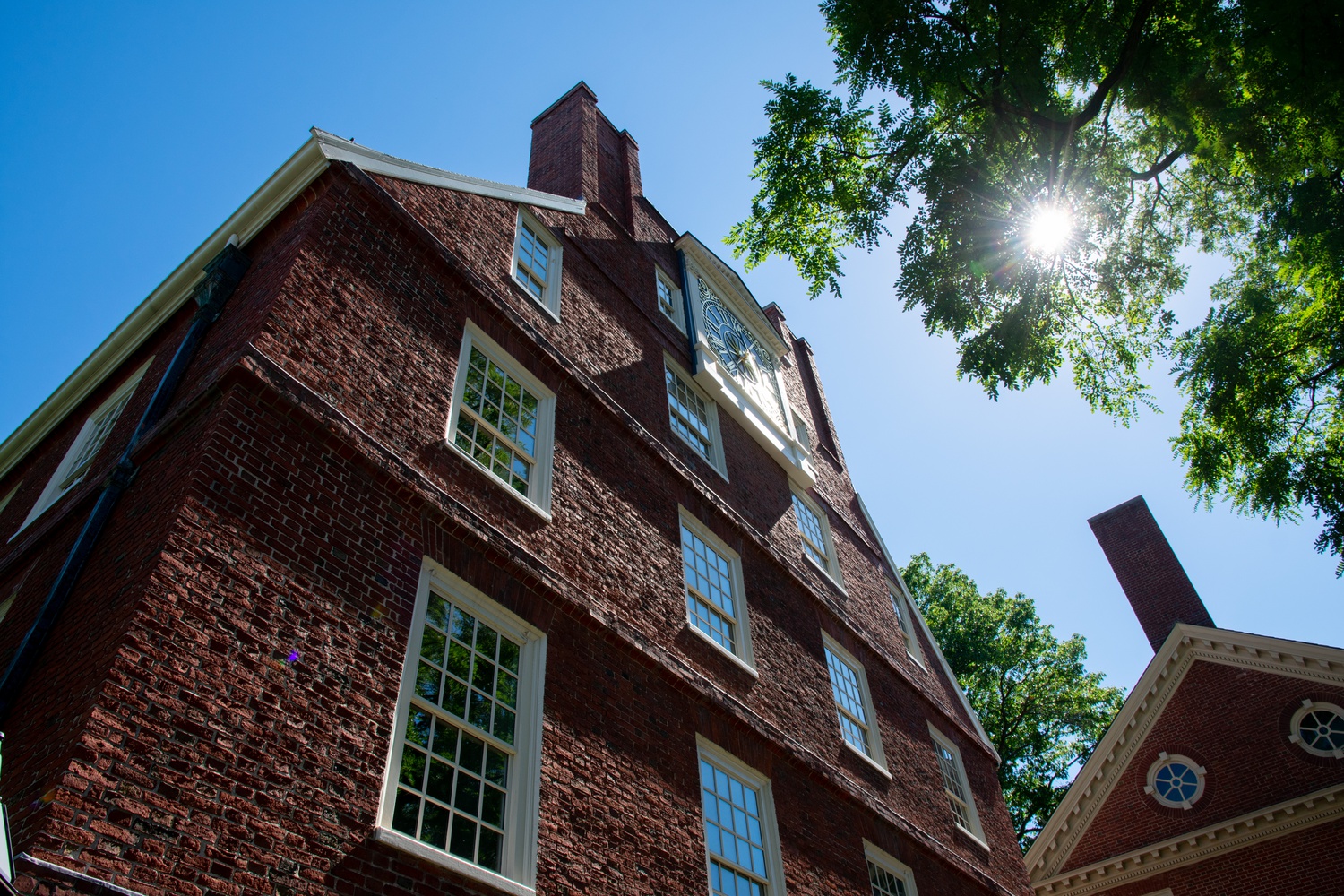
News
Summers Will Not Finish Semester of Teaching as Harvard Investigates Epstein Ties

News
Harvard College Students Report Favoring Divestment from Israel in HUA Survey

News
‘He Should Resign’: Harvard Undergrads Take Hard Line Against Summers Over Epstein Scandal

News
Harvard To Launch New Investigation Into Epstein’s Ties to Summers, Other University Affiliates

News
Harvard Students To Vote on Divestment From Israel in Inaugural HUA Election Survey
Kestenbaum Required to Hand Over Documents in Ongoing Lawsuit, Judge Rules

Harvard Divinity School graduate Alexander “Shabbos” Kestenbaum will have to hand over a series of documents related to his ongoing Title VI lawsuit against Harvard, after a judge approved the University’s request to compel the production of documents on Wednesday.
Kestenbaum, who is accusing Harvard of failing to address “rampant” antisemitism, will now have to produce extensive communications relating to his claims, including those with public officials and President Trump’s 2024 campaign.
Harvard issued the motion to compel on March 21, after Kestenbaum failed to produce the documents, initially requested Dec. 27.
Harvard requested the documents as part of two Title VI lawsuits filed against the University in December, one from Kestenbaum and Students Against Antisemitism and one from the Louis D. Brandeis Center for Human Rights Under Law and Jewish Americans for Fairness in Education.
Harvard settled both suits in January, but Kestenbaum refused the settlement and is now seeking continued litigation, though with different counsel. Two other students who filed testimony in the original suits have since petitioned to join Kestenbaum as plaintiffs.
In their opposition to the request, filed March 27, Kestenbaum’s lawyers claimed that the discovery request had been paused during settlement negotiations for the original suits — and that the pause had not yet been lifted.
But Harvard’s lawyers claimed that the pause had since been lifted, and the deadline for Kestenbaum to produce documents passed on Jan. 27.
Kestenbaum’s lawyers, however, argued that Harvard had delayed its own document production, which they cited as further reason to dismiss the motion.
In the March 27 filing, they wrote that Harvard has provided only 10 documents related to the case so far, all of which were already publicly available. They claimed that the documents were not provided until March 5 — 56 days after the original deadline for Harvard.
In an electronically filed court order approving the request to compel production, howerver, District Court Judge Richard G. Stearns dismissed both arguments from Kestenbaum’s lawyers.
“One bad act does not excuse another,” Stearns wrote. “A party may not disregard his own discovery obligations merely because the other party did not comply with the Federal Rules of Civil Procedure.”
Stearns also granted Harvard’s request to waive any objections by Kestenbaum to the motion, citing, “the weakness of plaintiff’s explanation for his failure to timely respond.”
Kestenbaum’s lawyers did not respond to a request for comment Wednesday evening.
Kestenbaum has until April 7 to respond to the order.
— Staff Writer Sebastian B. Connolly can be reached at sebastian.connolly@thecrimson.com and on X @SebastianC4784.
Want to keep up with breaking news? Subscribe to our email newsletter.
